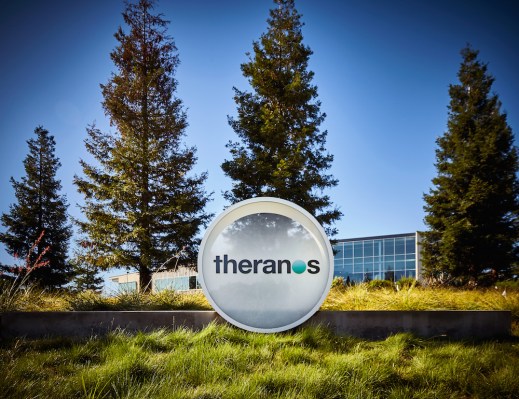Theranos is closing its labs and wellness centers, CEO Elizabeth Holmes announced today in a post on the company blog. And this isn’t a temporary closure: the “approximately” 340 employees running them are out of a job.
“After many months spent assessing our strengths and addressing our weaknesses, we have moved to structure our company around the model best aligned with our core values and mission,” Holmes wrote.
The company pivoted away from working on its closely held “nanotainer” technology to a “miniLab” in August. The boxy device — unveiled at the American Association for Clinical Chemistry conference — collects small samples of blood and urine and then uploads them to a centralized system for further analysis.
And it’s a far cry from what the company, once valued at $9 billion, set out to do. According to several experts whom TechCrunch spoke to at the unveiling, it might not be very innovative, either. Although Theranos didn’t want its new device referred to as a “lab on a chip,” that’s essentially what these experts said the miniLab was. And that has been done.
The new device hinges largely on FDA approval — something Holmes said she’d hoped to fast-track under the emergency use authorization (EUA) for Zika detectors. That plan didn’t go so well, however. The FDA denied Theranos approval after finding the company failed to use proper patient safety protocols.
The miniLab may not be the world changing plan Theranos set out for and will still need to overcome a few regulatory obstacles, but it may have been the only safe option for the company’s survival.
The news Theranos is shuttering its labs and wellness centers and laying off nearly half its workforce comes after a series of shocking revelations over the past year involving faulty test results and improperly trained workers. The company is now facing numerous lawsuits, was forced to shut down it’s California lab facility, lost its main partner Walgreens and was subject to a Congressional inquiry. Finally in July regulators banned Holmes from stepping foot in her own labs.
Sanctions were announced by the Centers for Medicare and Medicaid Services after the company’s blood testing methods were found to be lacking in accuracy. Among other things, the sanctions prohibited Holmes herself from owning, operating, or directing a lab, and removed the possibility of funding from Medicare/Medicaid systems. This would greatly complicate and limit the labs and testing side of the business.
Theranos announced in August that it was appealing the sanctions, but that doesn’t seem to have panned out yet — although the CMS has not enforced them on the timeline set out in July.
We contacted Theranos for more details on the prospect of operating under the sanctions and when the locations will be shut down, but a representative declined to comment beyond what Holmes wrote in the post.
The company says it will “return our undivided attention to our miniLab platform,” which seems like a good idea.
